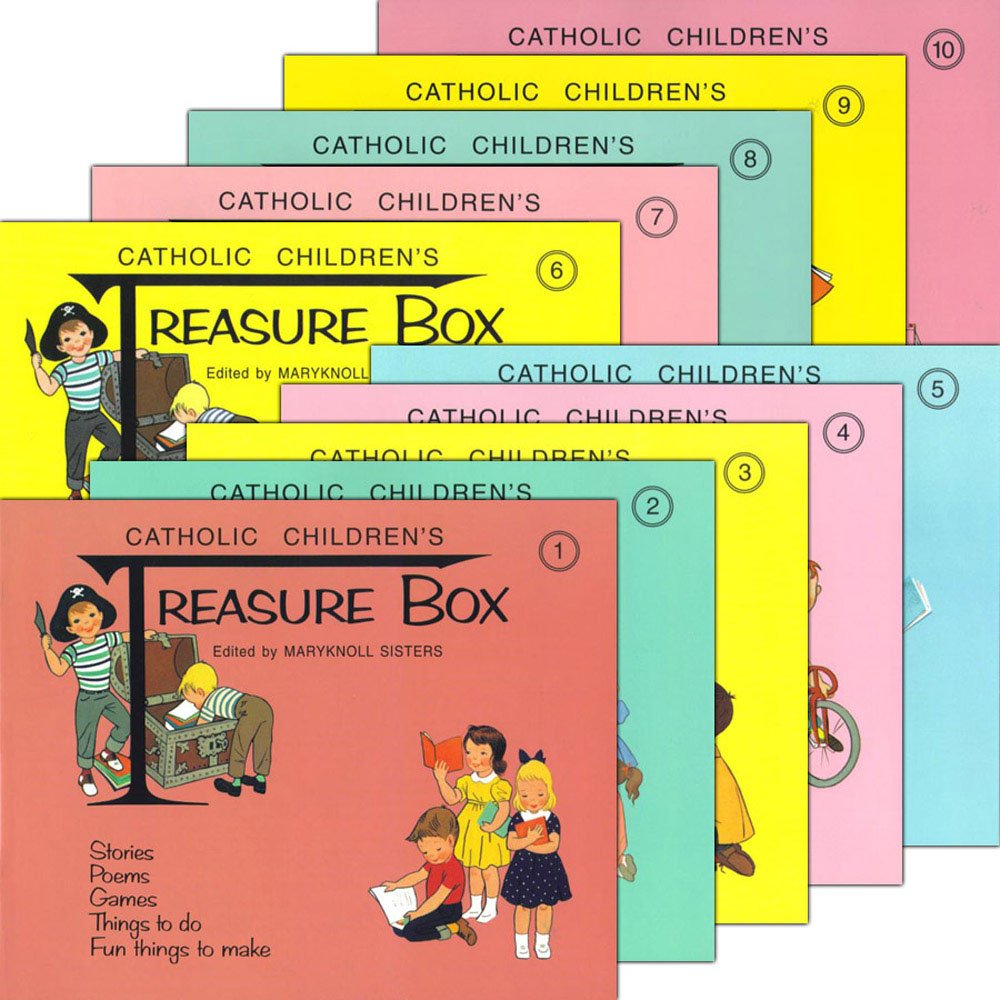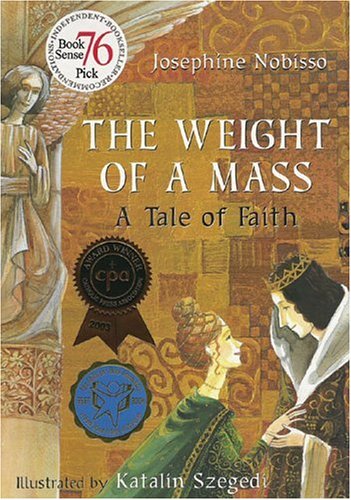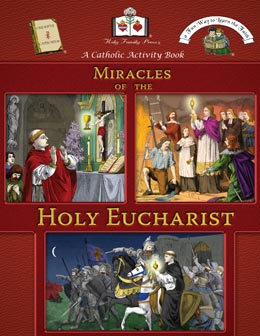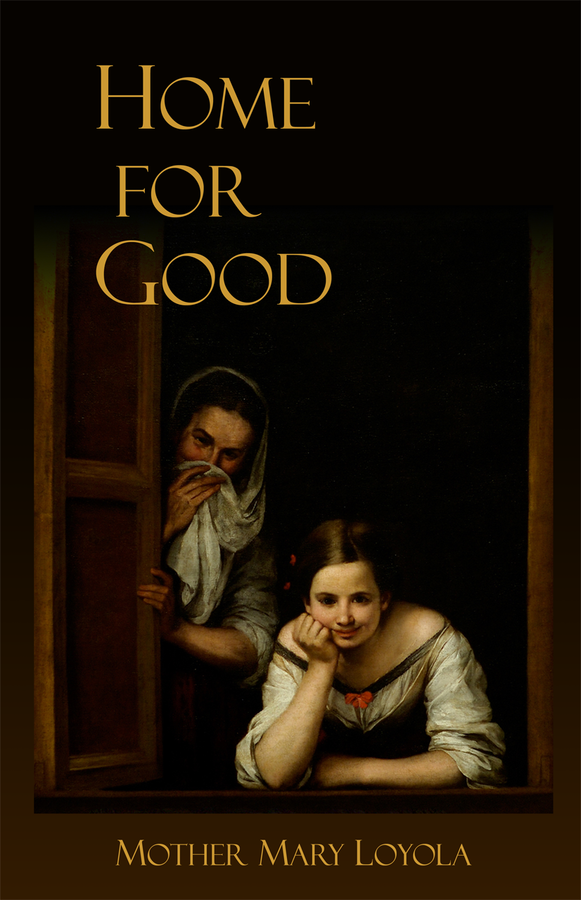
Coram Sanctissimo
by Mother Mary Loyola
I
Visits
Go to Him early in the morning, and let thy foot wear the steps of His doors.
(Ecclus. vi. 36.)
How careful we are to observe the courtesies of life! How uneasy till such social duties are discharged! In the making and returning of calls, how fidgety if hindered, how sensible that delay demands apology!
And this where mere acquaintances are concerned. But what when there is question of a friend, a benefactor, one devoted to us and to our interests? If formal visits are here uncalled for, it is only because our heart needs no prompting. Uninvited, inconsiderately often, we come and go, “wearing the steps of his doors.”
And our best of friends—do we treat Him thus?—as affectionately, as familiarly? If not, why not? Is He not among the benefactors whose gifts deserve thanks, the friends whose feelings have to be considered, the acquaintances, at least, whose attentions must be acknowledged? Is it because He puts Himself so completely at our disposal that He is to be neglected? Or because He is King of kings that He is to be considered outside the circle where courtesy is exacted?
Ah, Lord, how unmindful we are of what is due to You! How unmindful I am of Your unfailing devotedness to me! Sent into this world as into a strange neighbourhood, I found You waiting to receive me, to make me welcome, to offer Your services, to show me all manner of graceful kindness. You have thrown open Your house to me. You invite me to Your table. You press upon me Your gifts: “All ye that thirst, come to the waters…Come, buy wine and milk without money and without any price” (Isa. lv.). “Come to Me and I will refresh you” (Matt. xi.). “Him that cometh to Me, I will not cast out” (John vi. ). You make use of every motive to draw me to Yourself; yet have to complain after all: “You will not come to Me that you may have life” (Ibid v.).
“They began all at once to make excuse. I have bought a farm…I pray thee, hold me excused. I have bought five yoke of oxen…I pray thee, hold me excused. I have married a wife, and therefore I cannot come” (Luke xiv.).
Thus it was long ago; thus it is now. We have time for other duties—for our correspondence, our shopping, our afternoon calls on other more favoured friends. But no time for a visit to Him. Is it so far then to the nearest church? So far that He may well accept the distance as sufficient reason for our absence, except at times when attendance is of obligation? Can I urge home duties and necessary occupations, when I see who those are that can and do find time to visit Him?
O my Lord, why these wretched subterfuges with You, “the God of truth”? (Psa. xxx.) Why not fall at Your feet and own that it is not distance, nor lack of leisure, nor any reasonable plea that keeps me from You, but simply and solely the want of love? It is a reason I could not give to any other friend. I should have to find some other pretext with which to colour my neglect. But with You there need be no dissembling. Your friendship stands alone in the perfect frankness and confidence permissible on both sides. We may own to being cold and half-unwilling visitors, yet we are not, for that, unwelcome. The petulance, the selfishness, the waywardness of our moods that in the very interest of other friendships call for self-restraint, may show themselves in all their ugliness before the All-pitying, the Friend “more friendly than a brother,”(Prov. xviii) whom nothing can shock, disgust, estrange.
He wants our intercourse with Him to be perfectly free; nothing studied, nothing strained. He desires to have us as we are, no less than as we would be. He wants to be taken into our confidence, to be let into the secret chambers of our souls, into which we only peep ourselves at stated times and with half-averted glance. He would share in the interests and troubles of the moment; be called upon for sympathy in every event, great or small, that interrupts the even flow of our home life or of our inner life; take part in every experience, whether of sorrow or of joy. The soldier off to the front, the baby with its broken toy, the girl with her first secret, no less than the wife, the mother, the priest, with their burdened hearts— He wants them all. He sees us going off here and there for help, and comfort, and counsel. He hears our feet as they hurry past His door to wear the doorsteps of other friends, and He calls to us in those tones divine in their tenderness of reproach: “You will not come to Me. My people have forsaken Me, the Fountain of living water,and have digged to themselves cisterns, broken cisterns, that can hold no water” (Jer. ii.).
How long, O Lord, how long? When shall we wake up to the reality of Your Presence in our midst, and to the purpose of that Presence? We would die for it if need be, and yet we heed it not. Shall I wait till it is brought home to me by the remorse of my last hour, or by the long, long hours of purgatory? Oh, why did I not make use of my Emmanuel, my God with me, whilst I had time, “whilst He was in the way with me”? (Matt. v.) Why during my dream-life down there did I not realise the need of Him that is the one need in this real life of eternity?
A child at catechism said: “Won’t it be dreadful for those who don’t believe in the Real Presence to find at Judgment that it was real, that our Lord was there after all! Even if they didn’t know any better, and so it was not their fault, and our Lord is not angry with them—I think they will be so dreadfully sorry all the same.”
But if these will be sorry, what will be the case of those who did know, and neglected Him? Those to whom He will say, “So long a time have I been with you,and you have not known Me!”(John xiv. ) “I was daily with you in the temple.” (Luke xxii.)
Lord Jesus, let not that be my bitterest thought in purgatory, that land of bitter thoughts. It is time that Your love should be returned, that I should make amends for the past, that I should hasten to You with my sorrow and my love.
Go to Him early in the morning. Is daily Mass an impossibility in my case? He waits for me there, to offer, for me and with me, His sacrifice and mine for the interests we share together.
And let thy feet wear the steps of His doors. More especially in the afternoon or evening, when the church is quiet and He is left all alone. With a little goodwill and ingenuity could I not include a visit to Him in my weekly, if not in my daily programme? Could I not so arrange my calls to other friends as to leave a few moments for my dearest and my best? How blessed a remembrance, when He is brought to my doors at the last, to be my viaticum, that in life I was faithful to the duties of friendship and wore the steps of His doors!
O blessed, self-sufficing God
Athirst for me,
Coming a beggar to my door
All suppliantly,
Craving with meek persistence alms
Of my poor heart,
A thought, a word of sympathy—how sweet,
How sweet Thou art!
And must Thou knock and ever knock
Till life is flown,
Seeking vain entrance to a heart
That is Thine own?
Or wilt Thou rather work this hour
Such change in me
That hither I may come “wearing Thy steps”
Athirst for Thee!

Thank you so much to St. Augustine Academy Press for cooperating with this endeavor! If you are interested in this or other works by Mother Mary Loyola (as well as many other great books for spiritual growth and meditation), please check out their website.You will find many wonderful treasures from which to choose!








 Just in case you need a little motivation, perhaps you could be inspired by Christ’s Summons to His would-be followers:
Just in case you need a little motivation, perhaps you could be inspired by Christ’s Summons to His would-be followers:
 Gloria Children’s Books
Gloria Children’s Books Trea
Trea Angel Food for Boys & Girls
Angel Food for Boys & Girls The Weight of the Mass: A Tale of Faith
The Weight of the Mass: A Tale of Faith King of the Golden City
King of the Golden City
 Christopher’s Talks to Catholic Children
Christopher’s Talks to Catholic Children
 Outlaws of Ravenhurst
Outlaws of Ravenhurst  Creative Catechism Series from Holy Family Press
Creative Catechism Series from Holy Family Press  33 Days to Morning Glory
33 Days to Morning Glory  Before I Go: Letters to Our Children about What Really Matters
Before I Go: Letters to Our Children about What Really Matters The Gospels
The Gospels Home for Good
Home for Good Imitation of Christ
Imitation of Christ  The Lamb’s Supper: The Mass as Heaven on Earth
The Lamb’s Supper: The Mass as Heaven on Earth A Map of Life: A Simple Study of the Catholic Faith
A Map of Life: A Simple Study of the Catholic Faith
 The Screwtape Letters
The Screwtape Letters A Second Look: Encountering the True Jesus
A Second Look: Encountering the True Jesus The Story of a Soul
The Story of a Soul

